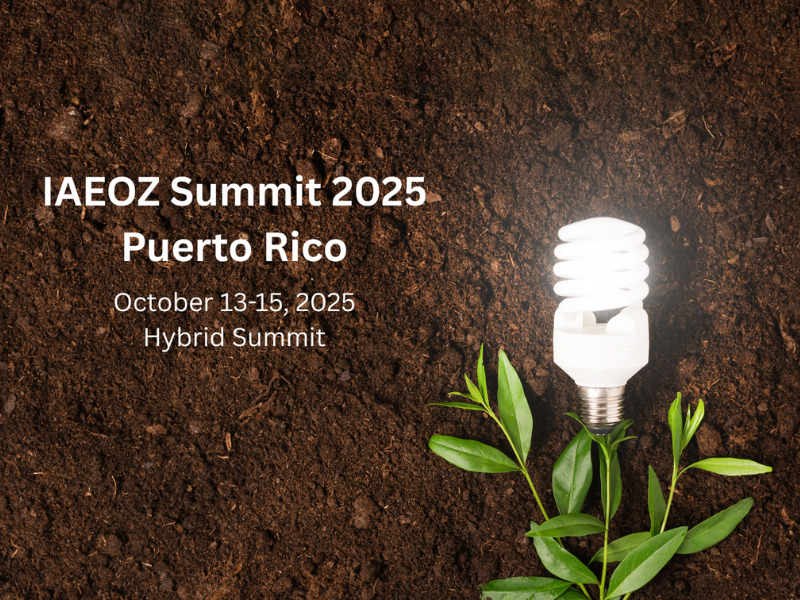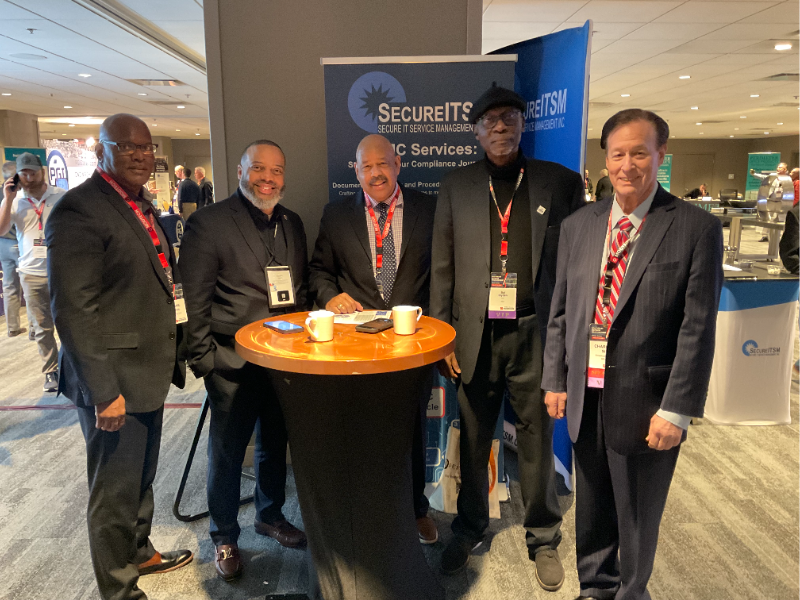What is Working and What Must Work Better for Latino MBEs to Maximize Their Contribution to the GDP and the U.S. Economy?
Latino Minority Business Enterprises (MBEs) represent one of the fastest-growing segments of the U.S. economy, contributing more than $800 billion to the nation’s annual economic output. However, while Latino MBEs have made significant strides, systemic barriers continue to hinder their ability to scale, access capital, and compete in the federal and global marketplace. At KDM & Associates, we believe it's time to spotlight what’s working—and shine a light on what must work better—for Latino MBEs to thrive.
Strong Community Networks and Entrepreneurial Culture: What’s Working
Latino-owned businesses often grow out of close-knit community and family structures. These cultural foundations foster resilience, collaboration, and creativity, which are hallmarks of successful entrepreneurs. Additionally, the surge in Latino-focused chambers of commerce, entrepreneurial incubators, like the MBDA Centers, and nonprofit organizations has played a vital role in creating technical support ecosystems.
Organizations such as the U.S. Hispanic Chamber of Commerce and local Latino business alliances continue to provide training, mentorship, and networking opportunities. Furthermore, many Latino MBEs show a strong inclination toward innovation in sectors like construction, logistics, healthcare, and digital marketing, bolstering their presence in local and regional supply chains.
Access to Federal Contracts: A Promising Trend with Gaps
Recent years have seen an uptick in Latino MBEs securing government contracts, thanks in part to targeted initiatives from federal agencies. Programs like 8(a) Business Development and Small Disadvantaged Business Certification have opened doors, and advocacy from the MBDA has helped amplify Latino voices in federal procurement discussions.
However, despite these gains, Latino MBEs still receive a disproportionately small share of federal contract dollars relative to their population and business footprint. According to the Congressional Hispanic Caucus, less than 2% of all federal contracts were awarded to Latino-owned firms in recent years.
What’s Working: More Latino MBEs are getting certified and registered in federal procurement systems.
With the growth in Latino MBEs, What must work better: Federal agencies and prime contractors must improve outreach and accountability mechanisms to ensure inclusive procurement practices that recognize the value and capacity of Latino-owned firms.
Capital Access Remains the Achilles' Heel
Access to capital is often cited as the most significant barrier facing Latino MBEs. Latino business owners are more likely to be denied loans or receive lower amounts at higher interest rates. Many rely on personal or family savings rather than traditional financial institutions, limiting their capacity for expansion and innovation.
While community development financial institutions (CDFIs) and programs like the SBA Microloan Program have increased their outreach, these tools are not always sufficient or accessible for larger-scale growth strategies.
What’s Working: Thanks to the Capital Readiness Program, there has been a rise in financial literacy programs, especially those that are bilingual and culturally competent.
What must work better: Financial institutions must be incentivized to increase lending to Latino-owned firms through credit enhancements, flexible underwriting, and public-private capital partnerships. Also, new grant programs, like those highlighted in the MBDA Capital Readiness Program, need to prioritize funding for growth-stage Latino businesses.
Visibility in Federal and Corporate Supply Chains
The push for supplier diversity has gained significant momentum in recent years, particularly in the wake of racial equity movements. Some corporations and federal prime contractors have made intentional efforts to include Latino suppliers in their procurement pipelines.
Still, visibility remains a major challenge. Many Latino MBEs are unaware of how to navigate supply chain portals, get certified as minority vendors, or engage in long-term contracts that provide consistent revenue streams.
What’s working: Corporations are expanding supplier diversity outreach with matchmaking events and capacity-building programs.
What must work better: Latino MBEs must be at the table when supplier diversity policies are being developed, not just during the implementation phase. A better integration of Latino suppliers into strategic sourcing conversations can help them move from Tier 2 to Tier 1 supplier status.
Digital Transformation: Opportunity Meets Inequity
The COVID-19 pandemic forced businesses to adapt quickly to digital tools for survival. For many Latino MBEs, this pivot became a lifeline—opening e-commerce channels, remote service delivery, and digital marketing.
However, digital divide still persists. Latino entrepreneurs often lack access to broadband infrastructure, tech training, or funds to invest in automation, cybersecurity, and cloud-based solutions.
What’s working: Grassroots digital training programs, including Google’s Latino Founders Fund and other tech-enabled incubators.
What must work better: Federal investments in broadband access and digital equity programs must prioritize Latino communities. Procurement agencies should also reward digital readiness in their evaluation of vendor proposals.
Intergenerational and Immigrant Business Leadership
A defining strength of the Latino business community is its multigenerational nature. Many Latino MBEs are either first-generation immigrants bringing global business insights or second-generation Americans blending bicultural perspectives.
These dynamics create strong leadership rooted in agility and determination. Yet, despite these advantages, many immigrant-owned businesses face language barriers, limited understanding of U.S. business regulations, and immigration-related challenges that hinder full participation in federal opportunities.
What’s Working: Community-based organizations that provide training in multiple languages and cultural contexts.
What must work better: Federal and corporate programs should recognize immigrant business leadership as an asset, not a liability. Procurement training, contracting language, and proposal assistance must be culturally and linguistically inclusive.
Representation in Advocacy and Policy
Latino voices are increasingly visible in local and national business advocacy forums. Organizations like the Latino Business Action Network (LBAN) and Unidos US have created platforms to amplify the needs of Latino entrepreneurs.
However, representation does not always translate into influence. Latino MBEs still struggle to influence procurement policy, small business legislation, and federal rulemaking at the level needed to address their structural barriers.
What’s Working: Latino advocacy groups are building coalitions across racial and sectoral lines.
What must work better: Latino MBE representation must increase in decision-making bodies, including procurement councils, advisory boards, and economic development agencies, and new hires inside of the State and Federal Agencies.
Take the Next Step
As we look ahead, it’s essential that both public and private sectors move beyond well-intentioned commitments and implement measurable, equitable outcomes for Latino MBEs. It’s not enough to open the door; we must ensure that Latino entrepreneurs have the resources, mentorship, access, and capital to walk through it and succeed.
We invite you to:
- Read more about what’s working across other minority communities and how those lessons can be applied at the MBDA FPC website, https://www.mbdafpcenter.com.
- Listen to our latest podcast episode discussing how Latino business owners are navigating the federal procurement maze.
- Explore solutions at the IAEOZ Summit in Puerto Rico, taking place Tuesday, October 14 through Thursday, October 16. The International Agriculture, Energy, and Opportunity Zone (IAEOZ) Summit is where leaders in procurement, policy, and entrepreneurship converge to explore equitable solutions. Visit the event site at iaeozsummit.com for more information and to register.
Conclusion
Latino MBEs are a powerful force in the American economy—creative, resilient, and driven. But to unlock their full potential, systemic barriers must be dismantled, and new bridges built. What’s working must be amplified, and what must work better can no longer be delayed.
Together, through intentional action, inclusive policy, and smart partnerships, we can ensure that Latino-owned businesses don’t just survive—they lead the way into a more equitable future. Share with us your thoughts on What is Working and What Needs to Work Better in order for the US to fully maximize on GDF growth as a result of Latino Business participation in the American economy.








